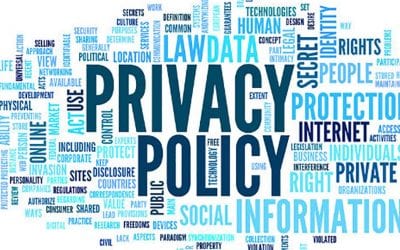Last week a group of senators, after conferring with the Senate Commerce Committee, decided to speak out about personalization of airfares and privacy issues. Fairness, privacy, common carrier and basic deception issues are involved with plans for personalized pricing by the airlines. The International Air Transport Association (IATA) has created an entire information technology structure to allow airlines to do just this. Travelers United (formerly Consumer Travel Alliance) has been speaking with members of Congress, the Department of Transportation (DOT), and other stakeholders about this issue for years.
Here is an excerpt from the Senate letter sent to Secretary of Transportation Foxx:
Although under Resolution 787, consumers will still have the option to decline to provide personal information to the airlines and shop anonymously, we remain concerned that Resolution 787 does not contain adequate measures to prevent airfare vendors from penalizing consumers by charging higher prices for those who choose not to share their information,” write the senators in the letter to the Department of Transportation. “We are concerned that airlines could penalize consumers who do not provide personal information, as well as could engage in discriminatory pricing practices with customers who do share their information.
Senators signing the letter were Bill Nelson (D-Fl.), Maria Cantwell (D-Wash.), Al Franken (D-Minn.), Cory Booker (D-N.J.) and Richard Blumenthal (D-Conn.)
DOT’s Advisory Committee for Aviation Consumer Protections (ACACP) also discussed this issue. The committee said that it would look into the privacy issues more closely. A separate meeting of airlines and consumer advocates has not been arranged yet. Consumer advocates agreed to a delay so that IATA could form a privacy study committee that would also include consumer privacy experts. That committee failed to form.
This was written by me and published on May 26th, 2010.
The days of an online travel profile are coming. In the future, passengers will have to give different reservation systems more and more personal information in order to figure out what the final cost of their airline ticket will be.
Travelers will need to eventually complete a “travel digital personality,” complete with frequent flier memberships and various credit cards and records of travel documents. At first this will probably be necessary with every online travel agency one uses, but eventually, I predict, travelers will be able to create a central travel profile that can be accessed by both travel agencies and airlines alike to provide the basis of personalized air travel costs.
The more an airline, online travel agency or brick and mortar travel agency knows about their customers, the better they provide optimized air travel costs.
Eventually, each passenger will build up a travel history. Many passengers will have their past travel histories loaded into their profiles. Of course, this information can then be used for other purposes such as targeted advertising.
Let’s say American Airlines decides to offer a bargain trip only for their frequent fliers that are “Gold Level” and higher; they can surgically send emails to just those passengers. Or, United can target pet owners with bargain coupons to encourage future travels. Or, AirTran can offer families guaranteed seating in the same row without the reservation fee.
Only last August the following Consumer Traveler story was published.
Airlines see personalization or customization of air travel costs as a system where they collect data about individuals and then create a price that is “personalized” for the consumer. That personalization will take into account personal information gleaned from frequent flier programs, prior purchases, credit card records from airline affiliated cards and data purchased from data brokers.
Make no mistake about it, the airlines are looking at (and testing, I believe) these personalization systems. Delta was caught serving up two different sets of prices to two businessmen traveling the same route and searching at the same time, side by side. Travelers United complained to the Department of Transportation (DOT), but the department determined that this was a computer glitch. Today, we know more about big data and this appears to have been a test being used by Delta Air Lines. In hindsight, it appears they were caught red-handed.
The DOT and airline response to this letter will shape the upcoming FAA Reauthorization bill where consumers are asking that transparent airfares, including baggage, seat-reservation fees and other charges are clearly identified prior to the purchase of any airline transportation.
Finally, here is a CBS Morning News segment on this IATA outlined practice. This puts the personalization into simpler terms, but doesn’t tackle the privacy issue and deceptive and misleading marketing issues.

Charlie Leocha is the President of Travelers United. He has been working in Washington, DC, for the past 14 years with Congress, the Department of Transportation, and industry stakeholders on travel issues. He was the first consumer representative to the Advisory Committee for Aviation Consumer Protections appointed by the Secretary of Transportation from 2012 through 2018.


